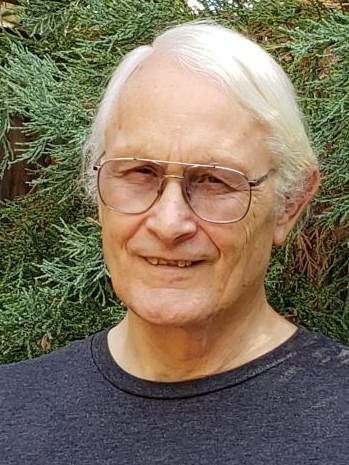American Psychological Association Division 50

I hope you all are well and staying safe during these trying times. I’d like to begin my first presidential column by thanking all of the people who volunteer their time and energy to making SoAP a success and, as a consequence, making my job easier. My sincere appreciation goes to the committee chairs and members, the officers and board members, liaisons, student volunteers, and all the other people who help. Thank you! For those of you who are not yet active in SoAP, I encourage you to become involved.
My presidential theme this year is Contexts matter: The who, what, where, and when of addictive behaviors. This theme may require a bit of explanation. What it highlights is the importance of the contexts in which substance use and other addictive behaviors occur. Addictive behaviors and the adverse outcomes of those behaviors are not just a matter of genetics, biology, or individual choices and differences, but also reflect the influences of broader social and physical environments. My own research, for example, has focused on adolescent alcohol use and problems and how the environments in which young people live shape and moderate drinking behaviors and their consequences. This theme is informed by a social-ecological perspective that considers influences at multiple, levels including families; peer groups; schools; drinking contexts; communities; workplaces; state and national policies; and cultural factors. My theme is intended to challenge clinicians and researchers to think about these multiple levels of influence that need to be addressed if we are to effectively reduce the harms associated with addictive behaviors. How do we create safer environments to reduce harms? How do we mitigate the effects of risky environments?
The situation I found myself in when I took office in August was not what I expected when I first ran for president of SoAP. I certainly did not anticipate the COVID-19 pandemic and its consequences. The pandemic has had profound challenges for our field. Some research suggests there have been increases in substance use, notably alcohol use, since the pandemic and shelter-in-place became our reality. At the same time, our work, both as clinicians and researchers, has become more difficult. How do we provide effective services? How do we complete our research? How do we effectively teach our classes? The situation may be most serious for students, trainees, and early career professionals. The possible effects on the availability of internship, training, and networking opportunities may be considerable. Given the constraints on research, students may face setbacks in completing theses and dissertations. Early career psychologists in academic settings may have more limited opportunities to complete research and publish, delaying promotion and tenure opportunities. Networking and mentoring, which are particularly important for early career development, may be difficult. These are areas where SoAP can and should provide support and assistance. In this regard, I note the outstanding webinars and discussion groups that are available through SoAP, led by the Education and Training Committee, and encourage you to take advantage of them.
In addition to concern about the difficult situation in which we find ourselves and how SoAP can help, I have specific goals that I’d like to achieve or at least attempt to achieve. A key issue has to do with membership. APA recently released a dashboard that provides demographics for the Divisions. Looking at the information for SoAP, a striking fact is that only about 19% of SoAP members are early career. More than 50% (including me) are over the age of 50 years. If SoAP is to thrive and grow, we need to attract and keep early career addiction psychologists. This is a major goal for me. The Membership Committee and the Student and Early Career Leadership are developing a number of initiatives to encourage early career psychologists and students to become members and stay in SoAP. These include instituting a new affiliate category for post-baccalaureate psychologists involved in research (a group previously excluded), developing a more systematic approach to recruiting students and engaging them in active roles in SoAP committees and activities, and increasing mentoring opportunities. Another important goal is increasing diversity and supporting under-represented groups in SoAP. The Diversity Committee, working with the Membership Committee, has a number of initiatives in process. In addition to increasing mentoring opportunities, an important development is the initiation of a new grant award, similar to our early career and student grants, to support research relating to diversity issues. Importantly, all of these initiatives have enthusiastic support from the SoAP board. Other initiatives in these and other areas are in development and I look forward to working with all the committees in increasing the scope and reach of SoAP.
In closing, I want to wish all of you good health and well-being. Please keep safe.

Resources are available for those struggling with addiction and numerous effective treatments exist. Whether you are looking for help for yourself or a loved one, we encourage you to seek out help.